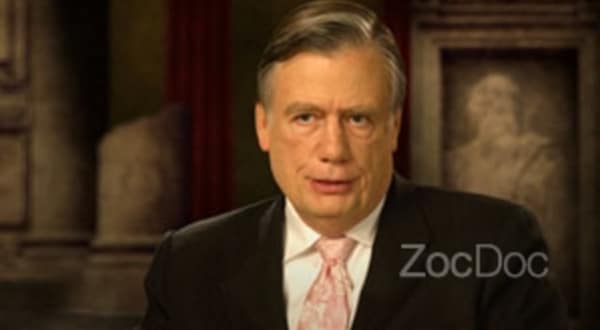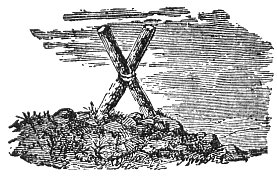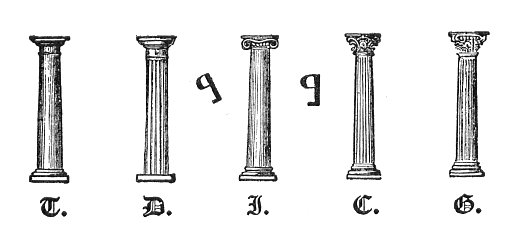In the spiritual world, the world of human consciousness, there
p. 829
is also a law, an ideal mode of action for the spiritual forces of man. The law of Justice is as universal an one as the law of At-traction; though we are very far from being able to reconcile all the phenomena of Nature with it. The lark has the same right in our view, to live, to sing, to dart at pleasure through the ambient atmosphere, as the hawk has to ply his strong wings in the Summer sunshine: and yet the hawk pounces on and devours the harmless lark, as it devours the worm, and as the worm devours the animalcule; and, so far as we know, there is nowhere, in any future state of animal existence, any compensation for this apparent injustice. Among the bees, one rules, while the others obey–some work, while others are idle. With the small ants, the soldiers feed on the proceeds of the workmen’s labor. The lion lies in wait for and devours the antelope that has apparently as good a right to life as he. Among men, some govern and others serve, capital commands and labor obeys, and one race, superior in intellect, avails itself of the strong muscles of another that is inferior; and yet, for all this, no one impeaches the justice of God.
No doubt all these varied phenomena are consistent with one great law of justice; and the only difficulty is that we do not, and no doubt we cannot, understand that law. It is very easy for some dreaming and visionary theorist to say that it is most evidently unjust for the lion to devour the deer, and for the eagle to tear and eat the wren; but the trouble is, that we know of no other way, according to the frame, the constitution, and the organs which God has given them, in which the lion and the eagle could manage to live at all. Our little measure of justice is not God’s measure. His justice does not require us to relieve the hard-working millions of all labor, to emancipate the serf or slave, unfitted to be free, from all control.
No doubt, underneath all the little bubbles, which are the lives, the wishes, the wills, and the plans of the two thousand millions or more of human beings on this earth (for bubbles they are, judging by the space and time they occupy in this great and age-outlasting sea of humankind),–no doubt, underneath them all resides one and the same eternal force, which they shape into this or the other special form; and over all the same paternal Providence presides, keeping eternal watch over the little and the great, and producing variety of effect from Unity of Force.
It is entirely true to say that justice is the constitution or fundamental
p. 830
law of the moral Universe, the law of right, a rule of conduct for man (as it is for every other living creature), in all his moral relations. No doubt all human affairs (like all other affairs), must be subject to that as the law paramount; and what is right agrees therewith and stands, while what is wrong conflicts with it and falls. The difficulty is that we ever erect our notions of what is right and just into the law of justice, and insist that God shall adopt that as His law; instead of striving to learn by observation and reflection what His law is, and then believing that law to be consistent with His infinite justice, whether it corresponds with our limited notion of justice, or does not so correspond. We are too wise in our own conceit, and ever strive to enact our own little notions into the Universal Laws of God.
It might be difficult for man to prove, even to his own satisfaction, how it is right or just for him to subjugate the horse and ox to his service, giving them in return only their daily food, which God has spread out for them on all the green meadows and savannas of the world: or how it is just that we should slay and eat the harmless deer that only crops the green herbage, the buds, and the young leaves, and drinks the free-running water that God made common to all; or the gentle dove, the innocent kid, the many other living things that so confidently trust to our protection;–quite as difficult, perhaps, as to prove it just for one man’s intellect or even his wealth to make another’s strong arms his servants, for daily wages or for a bare subsistence.

Moe is the founder of GnosticWarrior.com. He is a father, husband, author, martial arts black belt, and an expert in Gnosticism, the occult, and esotericism.







